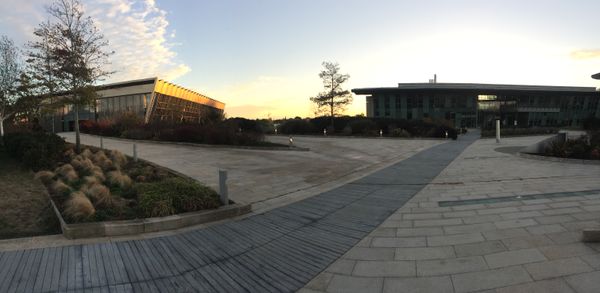Three reflections from David Hulcoop's first year as Executive Director
This month marks my first anniversary in the Executive Director role at Open Targets. This, plus the 10-year anniversary of Open Targets and onboarding our latest partner MSD, has been a great chance to step back and see our research programme with fresh eyes, to think about how we tell the story of Open Targets, generating and working with data to build knowledge, therapeutic hypotheses, and ultimately aid decision making in target discovery.
We’ll continue sharing our work with the community as we make progress but here are some reflections from the last 12 months.

1. Connections and collaborations
In this role I feel part of many communities, academic, industrial, experimental and informatic and more. This provides incredible opportunities to learn across boundaries and disciplines. We are fortunate to have amazing collaborations within our research programme and we’re happy to talk to people about working together but know we can’t cover absolutely everything.
The Open Targets consortium is working at its largest scale to date, bringing together two scientific institutes and five pharmaceutical partners. Working in deep partnership with our community is not easy and requires constant championing of a collaborative culture between academia and industry, building and reinforcing the connections between people. It’s a fascinating study in collaboration, negotiation, influence and decision making as we aim to understand where we can build collaborative projects that will have impact in our ability to understand and treat disease – projects such as Open-IBD. Launched on World IBD Day, this is Open Targets largest project to date and will study the early stages of Inflammatory Bowel Disease (IBD) and treatment at scale, with an amazing team focussed on identifying new and personalised ways to predict, monitor, and treat Crohn’s disease and ulcerative colitis. I am really excited about bringing this to life with the team and where it will take us.

2. Building and Sustaining
I have huge admiration for the incredible teams at EMBL’s European Bioinformatics Institute and beyond who build and sustain knowledge resources for the community. It’s something I didn’t appreciate enough before joining Open Targets.
In building our informatics platforms we’ve faced challenges developing our ecosystem as fast as we want to, while controlling technical debt within an active product release cycle. In 2022/2023 we invested significant time to rebuild the Open Targets Platform and that is paying off in 2023/2024 as we have been able to bring more complex features to life such as on-the-fly association scoring and new assessment frameworks for target prioritisation. In 2023/2024 we have focussed on similarly improving infrastructure around Open Targets Genetics and we are now really excited about what our new Gentropy pipelines will enable us to build and sustain for our users.
We see time and again it’s very easy to start something but not as easy to keep it going, that investments in our technical stack may go under the radar at first but are key to propelling our informatics ecosystem forward.

3. Progress and Challenges
There have been enormous strides made by the scientific community in technology and our ability to generate and work with data over the last 10 years. We hope to have made a positive contribution through our work.
We also know there is lots more to do and I still think drug target decision making is a difficult problem. We can fundamentally do a lot better in our understanding and definition of disease through patient stratification and by considering progression and treatment response. We are often treating the symptoms rather than the causes of disease. We can find interesting potential targets but not have the modalities to drug them (yet) or ability to connect them effectively to addressable biology. Some of the knowledge we take for granted in the community is incomplete, incorrect or much more dynamic than often represented. It’s still too easy to build a therapeutic hypothesis in a silo, without having the tools to enable systematic and strategic decision making to commit resources effectively to drug discovery programmes. Then even where we are successful, where basic research translates into a drug discovery programme, a drug candidate is found which proves safe and effective in the clinic, many drugs do not benefit all patients.
At Open Targets we have a great foundation to build from and address some of these challenges. To enable more granular, specific therapeutic hypothesis generation in terms of disease, target, tissue, cell and patient. To enable systematic evaluation and prioritisation of therapeutic hypothesis classes as well as the targets within them. To harness the capabilities of emerging transformational technologies in support of that and ultimately share our work to aid efforts to develop safe and effective new medicines.
There’s a lot to do and it can be intimidating, but what gets me out of bed in the morning is the progress we’ll make through our current projects and what we will be able to create together with our partners in the future.




